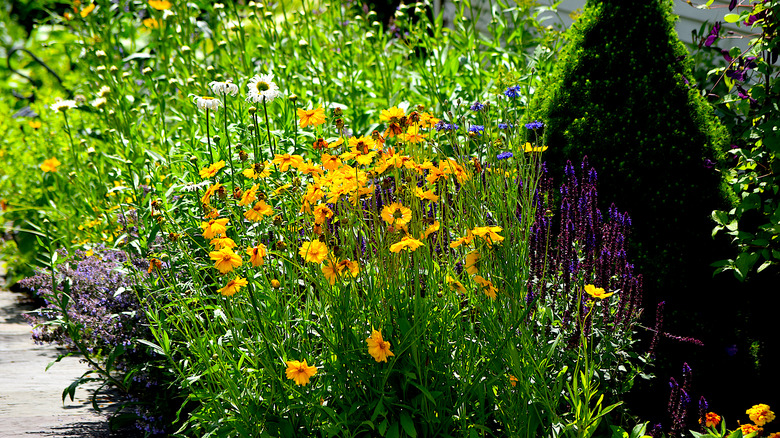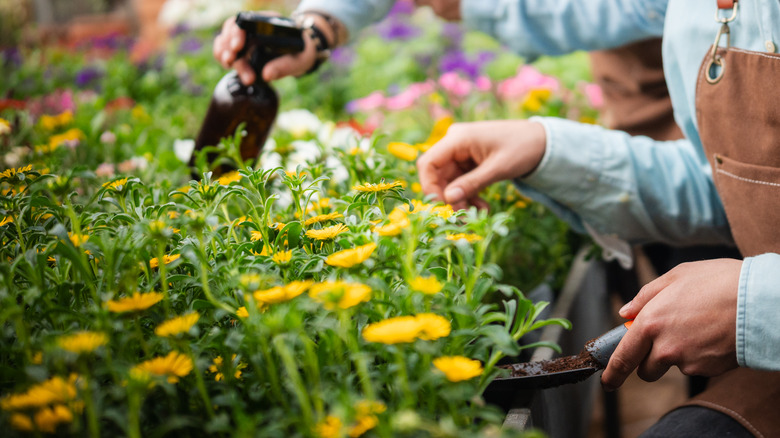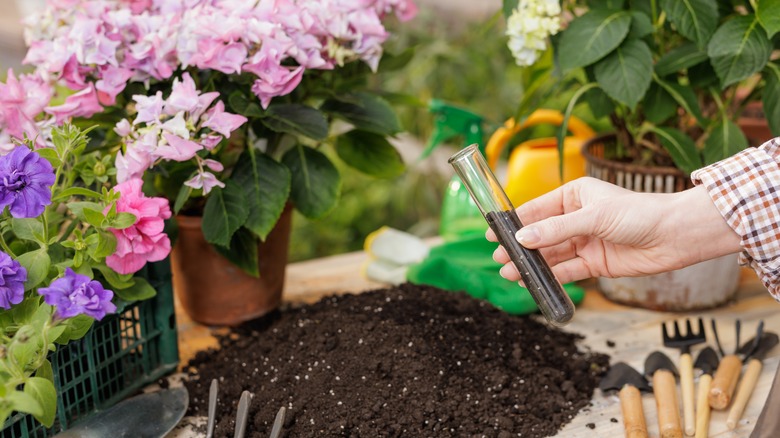The Fertilizer Mistake That Could Be Ruining Your Pollinator Yard
If you are trying to bring more pollinators into your yard and garden, you have to work hard. Gardeners often spend hours turning plain yards into beautiful places full of bees and butterflies. However, all that hard work can fade quickly if you're using excess synthetic fertilizers to feed your plants. People often make this mistake, believing that adding more fertilizer will help plants grow stronger. While that might be true to some extent, fertilizer also changes the way plants grow.
For instance, when you apply too much fertilizer, the added nitrogen boosts leafy growth while phosphorus alters the pollen and nectar quality in the flowers. A study published in PLOS One in 2017 revealed how nutrient pollution reduced larval survival and, ultimately, colony growth in pollinating bumblebees. Now imagine if everyone is overusing synthetic fertilizers, killing pollinators. With fewer pollinators, the plants suffer, and once-vibrant gardens become empty and dull.
In addition, over-application of fertilizers can also decrease a plant's resistance — and, conversely, increase their susceptibility to — insect pest attacks. This, in turn, causes gardeners to increase their use of pesticides. These chemical controls often contain compounds that are harmful to beneficial insects, pollinators included.
How too much fertilizer changes a pollinator yard
When plants get too many nutrients, it changes the way they grow. They use their energy to grow leaves and shoots instead of flowers. Fewer flowers also means less nectar, which can be a big problem if you just started learning about how to start a pollinator garden. Plants producing less nectar isn't even the whole problem. Excess fertilization changes the balance of the sugars and amino acids in the nectar.
These hidden changes mean pollinating insects may exhibit less interest in the flowers they once loved, which you obviously don't want when keeping your garden full of pollinators. Excessive use of fertilizers can also damage plant roots, which could negatively affect nectar secretion, even if the number of flowers remains the same. What's even worse is that the nutrients from synthetic fertilizers leach away, affecting areas far beyond your yard. For instance, fertilizer runoff encourages algal blooms downstream, altering plant communities in ways that don't support pollinators.
Interestingly, synthetic fertilizers can even make it difficult for bees to find flowers. Research published in Oxford Academic in 2022 found that spraying flowers with synthetic fertilizers alters their electrical field. The pollinating bumblebees in the study approached treated flowers less often, and when they did, they were less likely to land.
Minimize fertilizer risks in pollinator yards
The first thing to keep in mind if you want to protect your pollinator yard: Treat synthetic fertilizer as a targeted tool, not a blanket option. Always start with a soil test to learn if, how, and when your plants need fertilizing. Avoid spraying your flowers when they are blooming and avoid applying foliar feeds on open flowers. That way, pollen and nectar don't get contaminated with synthetic compounds, which might repel pollinators.
Apply granular fertilizer to moist soil or water the area immediately after application. That reduces fertilizer residue on surfaces pollinators touch. Use compost or other organic amendments to feed your pollinator yard, reducing dependence on synthetic fertilizers. If that is not an option, avoid synthetic fertilizers high in nitrogen, especially in late summer.
These products usually spur tender regrowth, which can attract sap-sucking pests. Their arrival may push you to use pesticides, which also create problems for pollinators. Finally, if you choose to use a spray fertilizer, try to time your application outside peak pollinator foraging hours — that is, in early morning or evening. Bees and other beneficial pollinators are usually more active during the day when the flowers are fully open.


